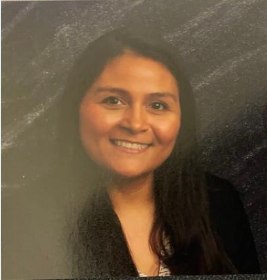Alcohol
About
Alcohol is the most commonly used and abused drug among youth in the United States. As teenagers mature, it is natural for them to assert their independence, and that often turns into seeking new challenges and taking more risks. Many teens want to try alcohol but may not fully recognize the adverse effects on their health and behavior. Additionally, many teens drink due to peer pressure, a coping mechanism to relieve stress or anxiety, a desire to feel more grown up, to rebel, or out of curiosity.
Facts about youth and alcohol
There are a variety of risk factors that increase the chance of developing alcohol addiction. One of the strongest and most consistent predictors of increased risk of addiction is the age of first use. Others include family history, other existing mental health conditions like depression, anxiety and ADHD. source
Research shows that alcohol abuse during the teenage years negatively impacts the memory center of the brain (the hippocampus) and may also disrupt the development of the adolescent brain in unhealthy ways, making it harder for teens to cope with social situations and the normal pressures of life. source
Age of first drinking alcohol is critically important. Among teens who begin drinking at age 14 or younger, 40% develop an alcohol dependence, compared to a 10% chance among those who begin drinking at age 20. source
Facts about Pelham youth and alcohol
Pelham high-schoolers drink alcohol at significantly higher levels than their national and county peers. source
Binge drinking among Pelham youth jumps significantly between 10th and 12th grade. While 14% of 10th graders report binge drinking, 44% of 12th graders report the same. The same relationship exists for drinking alcohol at all, 24% of 10th graders report using alcohol in the past 30 days, whereas 56% of 12th graders report this behavior. source
Our girls report drinking at higher levels than boys (28% vs 20%), and our non-binary students report drinking at higher rates than girls (29% vs 28%). source
The top reason for using alcohol, as reported by students, is “to socialize.” source
Hotlines
YouthLine is a free, confidential teen-to-teen crisis and help line. Contact us with anything that may be bothering you. No problem is too big or too small for the YouthLine!
Teen Line is a confidential hotline for teenagers which operates every evening from 6:00pm to 10:00pm PST.
Get One-on-One Help to Address Your Child’s Substance Use. Support available in Spanish and English.
Free, 24/7 support for those in crisis. Text 741741 from anywhere in the US to text with a trained Crisis Counselor.
Service Providers
Providing 24 hour access to immediate inpatient or outpatient addiction treatment, accepts many private insurance plans.
Outpatient chemical dependency treatment and education services for adults, adolescents, and their families.
12 step fellowship for the family and friends of individuals with drug, alcohol or related behavioral issues.
Full-time social worker at PMHS available to counsel students about social and emotional issues and substance use.
Specializes in individual therapy for adolescents and young adults, as well as parenting support.
A group of caring, creative, insightful, and dedicated psychotherapists who approach mental health from a holistic perspective.
Articles
The Child Mind Institute has created this exceptional video addressing how and when to talk to your kids about drugs and alcohol. Parents are generally pretty clear that the conversation must be had, but we can easily push it off out of fear, or because we really don’t have a clear script in mind and don’t know what to expect. Oftentimes, our parents did not have this conversation with us, and we have no role models in how to proceed. This video not only gives terrific talking points, but acknowledges how difficult it can be, and provides strategies for keeping the lines of communication open.
Some highlights from the (7 minute) video are:
By Melissa Ronan, LMSW, Pelham Together Executive Board Member, and Chair of the Pelham Together Mental Health Committee
It’s not just that your teen is drinking. The bigger issue with teenage drinking is that many kids drink to cope instead of learning to cope. And teens with mental health problems often drink to self-medicate, camouflaging the symptoms of underlying issues that are developing. Studies show that the later kids start drinking, the less likely they are to ever develop a substance abuse problem. So delaying or minimizing teen drinking has significant long-term benefits to their physical and emotional well-being.
Organizations
The Child Mind Institute is an independent, national nonprofit dedicated to transforming the lives of children and families struggling with mental health and learning disorders through research, education, and clinical care.
The go-to organization for families addressing every aspect of substance use and addiction, from prevention to recovery.
Books
Other Resources
The Child Mind Institute has created this exceptional video addressing how and when to talk to your kids about drugs and alcohol. Parents are generally pretty clear that the conversation must be had, but we can easily push it off out of fear, or because we really don’t have a clear script in mind and don’t know what to expect. Oftentimes, our parents did not have this conversation with us, and we have no role models in how to proceed. This video not only gives terrific talking points, but acknowledges how difficult it can be, and provides strategies for keeping the lines of communication open.
Some highlights from the (7 minute) video are:
At our Advisory Board meeting in April 2021, VOP Detective John Hynes gave us a presentation on the Social Host Law in Westchester County. You can listen to his short presentation here.
Provides information on common mental health disorders in adolescence, tips on identifying substance misuse, and steps to making informed decisions about evaluation and treatment for co-occurring disorders.
A primer on how to tackle substance abuse when you’re also dealing with depression, anxiety, or another mental health problem.
Regardless of what parents choose when it comes to providing alcohol to their own adolescents, there are many good reasons not to serve alcohol to other people’s kids.

















![How And When Do I Talk With My Kids About Alcohol And Drugs [Child Mind Institute]](https://images.squarespace-cdn.com/content/v1/5be5a23629711449ca99504e/1720708813972-PFPAJPFZGCYUOCIU0GZF/chmind1.jpg)




